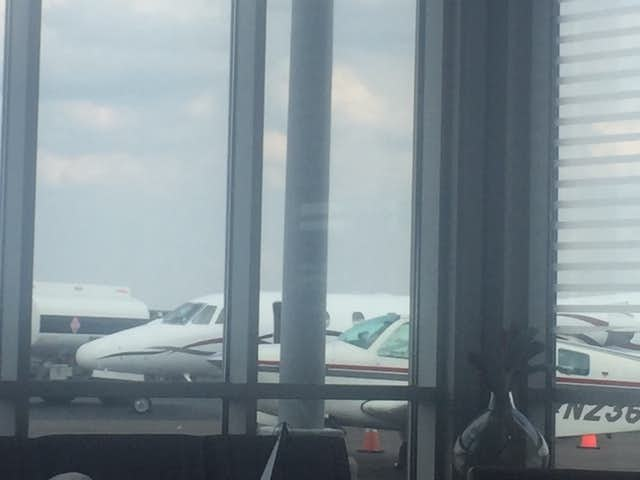
If you are successful enough to own your own private jet, it probably took long hours and lots of hard work.
Chances are, you bought your private jet – or turboprop – because it was a business tool, allowing you to go to multiple locations and out of the way places more efficiently.
It might have even saved your marriage. You were able to get home for dinner once in a while. You didn’t miss those school nights or that first Little League home run.
It certainly helped grow your business, enabling you to see more customers and interact with managers at remote locations on a regular basis.
Between business and personal life, you have a full plate. Your expertise in making widgets, not Federal Aviation Administration and Transportation Department regulations.
What’s more, you have insurance in case something happens. You think you are covered, but maybe not.
Now think about this.
You regularly fly between your home base and the town where your biggest client’s son plays minor league baseball. Many people say he is a future all-star.
Whenever schedules mesh you happily give him a lift. He returns the favor by getting you and your son box seats whenever you ask.
On one flight, your plane skids off the end of a slick runway and bursts into flames. While you survive, tragically, your client’s son perishes.
Or now consider this.
Your King Air is parked next to another aircraft sealed up and ready to taxi. You’re not on it.
Your neighbors are headed to their condo in Florida. It’s a casual arrangement.
You let them borrow your plane twice a year. They give you use of their vacation home four weeks a year. There’s no written agreement.
On this day, it’s loud on the tarmac. All of a sudden a dog traveling on the other plane breaks loose. A 12-year old running after her pet doesn’t see the turning propeller.
In both cases, there will be an investigation by the National Transportation Safety Board. You could end up facing civil penalties and fines as well.
What did you do?
To add to the misery, pain, stress, grief and broken relationships, you’ve given your insurance provider a wide berth to claim you violated your policy.
A strong argument could be made that you were violating the Federal Aviation Regulations (FARs) by operating an illegal charter.
The price of aviation for insurance for commercial operations, such as charter operators and air taxis that fly passengers and freight for compensation is multiple times more expensive than for private flights or general aviation operations, that is where the policyholder is not receiving some benefit in return.
Not to be a panic merchant, but that’s not my opinion. It comes from David M. Hernandez, a leading aviation attorney with Vedder Price.
He should know. Prior to joining the firm, Hernandez was a prosecutor at the FAA as well as a DOT Honors Attorney.
If you receive compensation for a flight, you need to operate under (1) FAR Part 135, which requires higher levels of regulatory compliance and scrutiny from regulators, rules for pilot duty time, aircraft maintenance and so on or (2) under very limited FAR Part 91 compensation exceptions.
In all likelihood, the flights in the above examples were being flown under Part 91. But it’s unlikely that the flights were operated in compliance with the narrow compensation exceptions, under FAR Section 91.501.
An exemption might be that you are flying a potential customer as a guest to see one of your factories. His company won’t allow accepting free flights from a potential vendor. You are allowed to charge based on specifically limited expenses related to that flight.
In neither example cited earlier would your compensation likely be considered de minimis by the FAA, according to Hernandez.
The FAA views virtually anything of value as compensation, including goodwill.
So while taking a box of chocolates is one thing, just transporting the son of key client represents goodwill, which is something of value, hence compensation.
In other words, your flight may be deemed an illegal commercial charter. The maximum fine for each FAR violation, by the way, is $34,000 and each flight involved multiple FAR violations.
In other words, a proposed $500,000 civil penalty for just a couple of flights is certainly possible.
Hernandez says insurance policies can run 70 pages, and most people never actually read their policies.
If the accusation is that you were operating the aircraft illegally in violation of the FAR, that may put you at odds with your insurance company, particularly for cases in which the violation contributed or cause the loss.
While you can fly anyone you want for free, and even let others use your airplane for free, the nuances can be expensive if you misjudge them.
He also notes that FAA regulatory compliance standard is different than the civil duty of care standard for negligence, so even if regulators don’t fine you, that may not help your defense if you are sued for negligence.
Under normal circumstances, the type of arrangements described above would be unlikely to come under scrutiny from the Feds.
Hernandez says they are hard to detect and prove, and when caught, the parties typically deny any compensation arrangements.
“Compensation is anything, tickets, you use my boat, use my condo, any type of quid pro quo or anything of value is considered compensation from the FAA’s perspective,” he notes.
However, when there is a tragedy, you may find the old adage ignorance of the law is not a defense.
On a positive note, if you are just letting friends ride along with you because there is an empty seat, you are okay.
“In that case, it’s not an issue and there is no regulatory exposure. The FAA has no problem with ‘tag-a-long’ or empty seat passengers, provided of course that the travel is truly unconditional,” Hernandez says.